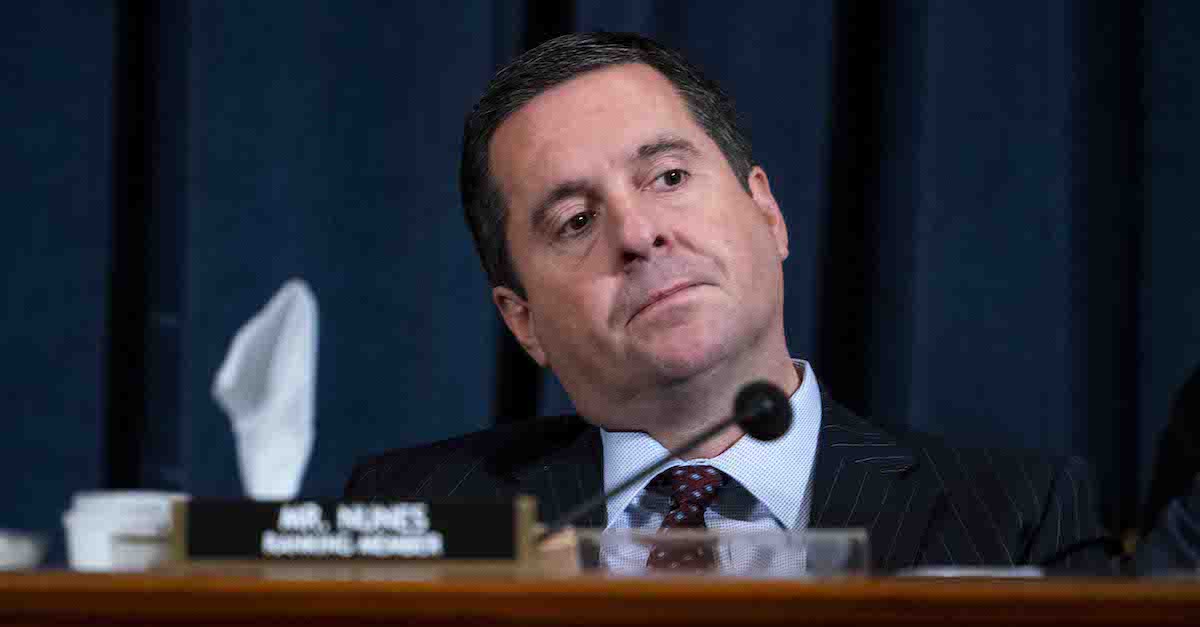
A federal appeals court on Thursday affirmed the dismissal of a defamation lawsuit filed by attorney Steven Biss on behalf of a Russian-born student who claimed she was libeled by multiple major news organizations for suggesting she had an affair with former National Security Advisor Michael Flynn and played a role in the Russian effort to meddle in the 2016 presidential election.
You may recognize Biss from his representation of Rep. Devin Nunes (R-Calif.) in a series of unsuccessful lawsuits. Biss recently represented Dan Bongino as well.
The Russian plaintiff, Svetlana Lokhova, filed a complaint in May 2019 alleging that The Wall Street Journal, The New York Times, The Washington Post, MSNBC, and University of Cambridge academic Stefan Halper had all defamed her by falsely claiming she was a Kremlin spy involved in collusion between the Trump campaign and the Russian government.
The suit was dismissed in February by U.S. District Judge Leonie Brinkema of the Eastern District of Virginia — an appointee of President Bill Clinton — who reasoned that the complaint was filed more than a year after some of the allegedly defamatory statements were made and was thus barred by the statute of limitations. The judge held the remaining statements weren’t defamatory as a matter of law and she had choice words for Biss. She also denied Halper’s request for sanctions.
“Although the Court does not condone the tactics employed by Biss and Lokhova in this action, their conduct is not sufficient to warrant the draconian measure of imposing sanctions at this time,” Brinkema wrote. “The allegations of improper behavior by Biss are undoubtedly more severe than those by Lokhova, and should Biss file further inappropriate pleadings or pursue frivolous post-judgment litigation against any of these defendants, sanctions might well be justified.”
A three-judge panel on the U.S. Court of Appeals for the Fourth Circuit upheld Brinkema’s ruling Thursday, finding that statements which weren’t barred by the statute of limitations did not constitute defamation. The circuit court also reiterated the district court’s chastising of Biss.
“Of note, this is not the first time attorney Biss’s litigation conduct has earned reprimand. His history of unprofessional conduct is long,” the appeals court wrote.
“We agree with the district court’s observations and endorse the court’s reprimands concerning inappropriate ad hominem attacks,” the appeals court added while referring to the initial complaint filed by Biss. The opinion recalled some of those attacks — which contained colorful language:
In addition to his motion to dismiss, Appellee Halper filed a motion to sanction Appellant and attorney Biss. The motion for sanctions argued that Appellant and attorney Biss used this litigation “to make, publicize and disseminate vulgar and degrading accusations” against Appellee Halper. The amended complaint calls Appellee Halper a “ratf***er” and the Media Appellees “stooges.” The motion for sanctions further asserted that Appellant’s claims are “meritless” and “based on obviously untimely allegedly defamatory statements.”
Despite the name-calling, the appeals court chose to “endorse” the district court’s decision not to impose sanctions against Biss: “We leave to the district court whether it will ultimately join the chorus in sanctioning attorney Biss.”
The underlying statements which led to the lawsuit included the following in the Post: “During a dinner [General] Flynn attended, [Appellee] Halper and [Richard] Dearlove were disconcerted by the attention the then-[Defense Intelligence Agency] chief showed to a Russian-born graduate student who regularly attended the seminars, according to people familiar with the episode.”
Lokhova claimed she did not attend the dinner, but the panel held that the statement was not defamatory as a matter of law.
“Here, the Post Article similarly failed to ‘create a reasonable implication that [Appellant] solicited or procured the insinuated special’ attention from General Flynn because it focused on General Flynn’s conduct alone,” the court wrote.
The second statement was a tweet sent by MSNBC’s Malcolm Nance that read, “The technical name for sexy women Agents is a ‘Svetlana.’” He also suggested she was a “honeypot” for Flynn. But Lokhova failed to serve Nance personally, instead going after the network, which the panel ruled could not be held vicariously liable for Nance’s tweets.
“The sole factual allegation supporting Appellant’s conclusory statement that Nance ‘conducts the business of NBC/MSNBC’ on his Twitter account is that ‘NBC/MSNBC’ appears in Nance’s Twitter bio,” the court wrote. “But viewed in context, this is not enough to give rise to apparent agency.”
Read the full opinion below:
Svetlana Lokhova v Stefan H… by Law&Crime
(Photo by Doug Mills/Pool/Getty Images)